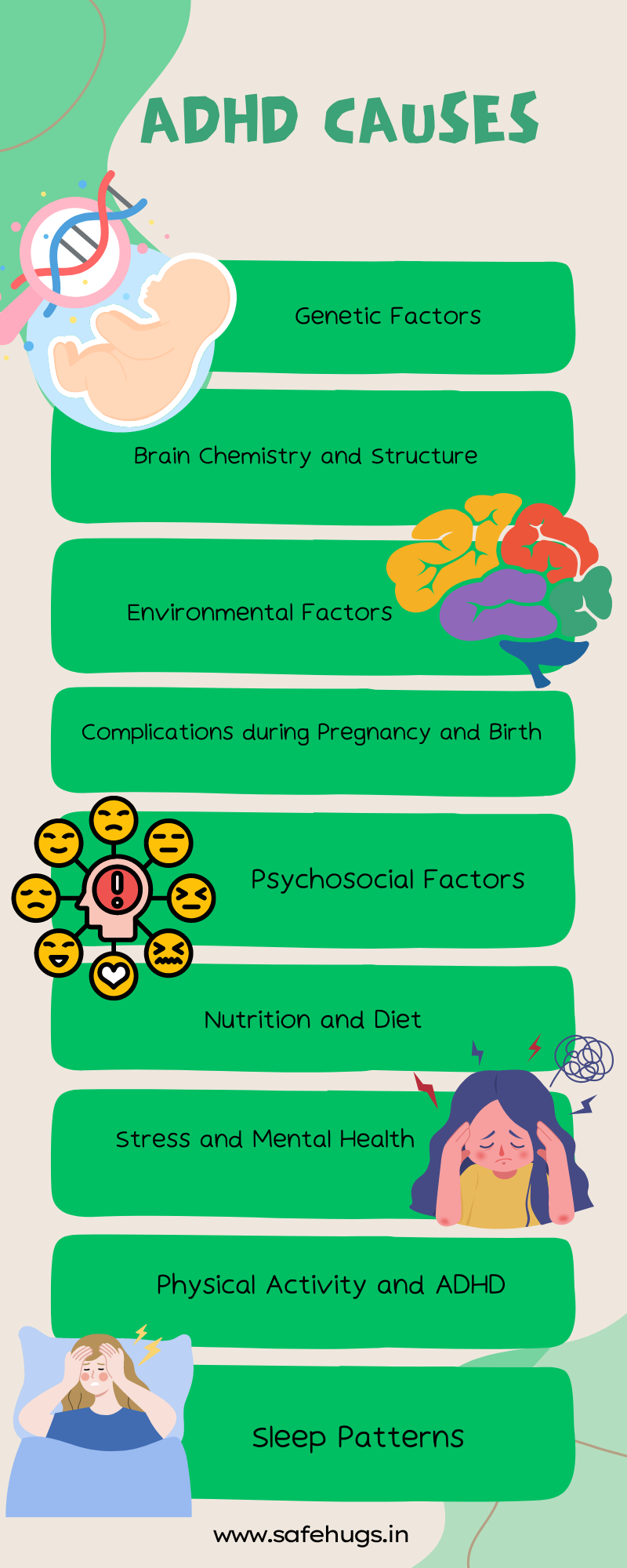ADHD Causes: Key Factors Responsible
Attention-Deficit/Hyperactivity Disorder (ADHD) is a neurodevelopmental disorder characterised by persistent patterns of inattention, hyperactivity, and impulsivity that can impact daily functioning. While the exact cause of ADHD is not yet fully understood, research suggests that a combination of genetic, environmental, and neurobiological factors play a role in its development.

Genetic Factors
One of the most significant contributors to ADHD is genetics. Studies have shown that ADHD tends to run in families, with parents and siblings of individuals with ADHD being at a higher risk of also having the disorder. Specific genes related to dopamine regulation, such as the dopamine transporter gene (DAT1) and the dopamine receptor D4 gene (DRD4), have been identified as potential contributors to ADHD. These genes are involved in the regulation of dopamine, a neurotransmitter that plays a key role in attention, reward, and movement.
| "Before understanding the causes of my son's ADHD, I often blamed myself. Learning about the genetic and environmental factors helped me realize it's no one's fault. It's just a part of who he is, and we can work with it.” - Maya, Mother of a Child with ADHD |
Brain Chemistry and Structure
Differences in brain structure and function have also been implicated in ADHD. Neuroimaging studies have revealed that individuals with ADHD often have differences in the size and activity of certain brain regions, particularly those involved in attention, impulse control, and executive function. For example, the prefrontal cortex, which is responsible for executive functions like decision-making and impulse control, may be less active in individuals with ADHD. Additionally, imbalances in neurotransmitters like dopamine and norepinephrine, which play key roles in regulating attention and behaviour, have been observed in individuals with ADHD.
RELATED: ADHD treatment.
Environmental Factors
Dr. Emily Chen, a geneticist specializing in ADHD research, explains that while genetics play a significant role in ADHD, it's not the sole determinant. Environmental factors also play a crucial role in the development of the disorder. Prenatal exposure to toxins such as lead, alcohol, or tobacco, as well as maternal stress during pregnancy, have been linked to an increased risk of ADHD. Early childhood exposure to environmental toxins or trauma can also impact brain development and increase the likelihood of developing ADHD later in life.

Complications during Pregnancy and Birth
Complications during pregnancy or birth, such as premature birth, low birth weight, or brain injury, have been associated with an increased risk of ADHD. These factors can disrupt normal brain development and contribute to the onset of ADHD symptoms later in life.
Psychosocial Factors
Psychosocial factors, including parenting style, family dynamics, and exposure to trauma or adversity, can also influence the development of ADHD. Children who experience inconsistent or harsh parenting, family conflict, or early-life stress may be more likely to exhibit ADHD symptoms. Additionally, children who grow up in environments with limited structure or support may struggle more with impulsivity and attention issues.
ADHD is a complex disorder with multiple contributing factors. While genetics play a significant role, environmental and psychosocial factors also contribute to its development. A better understanding of these causes is crucial for developing effective interventions and support strategies for individuals with ADHD.






























